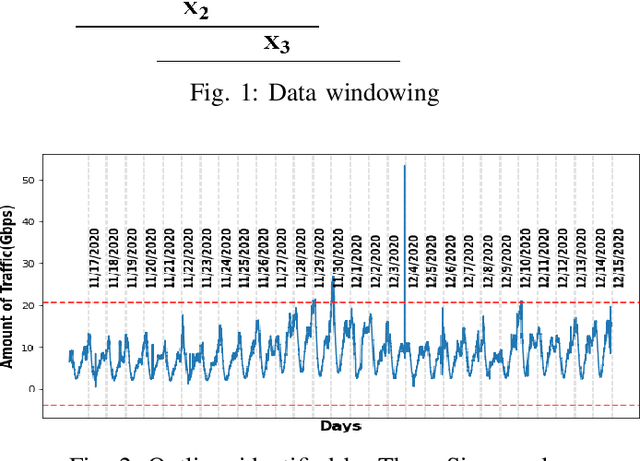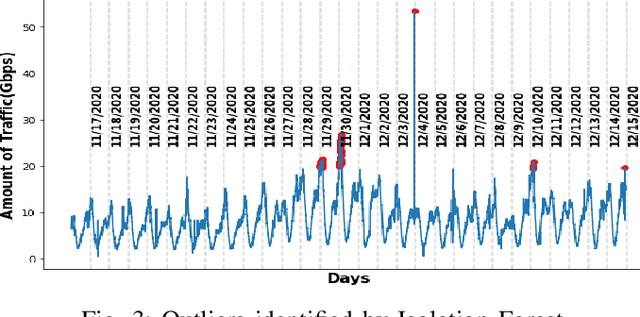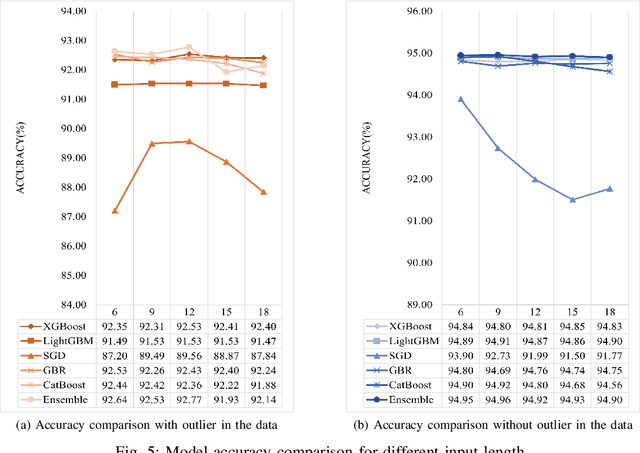Towards an Ensemble Regressor Model for Anomalous ISP Traffic Prediction
Paper and Code
May 03, 2022



Prediction of network traffic behavior is significant for the effective management of modern telecommunication networks. However, the intuitive approach of predicting network traffic using administrative experience and market analysis data is inadequate for an efficient forecast framework. As a result, many different mathematical models have been studied to capture the general trend of the network traffic and predict accordingly. But the comprehensive performance analysis of varying regression models and their ensemble has not been studied before for analyzing real-world anomalous traffic. In this paper, several regression models such as Extra Gradient Boost (XGBoost), Light Gradient Boosting Machine (LightGBM), Stochastic Gradient Descent (SGD), Gradient Boosting Regressor (GBR), and CatBoost Regressor were analyzed to predict real traffic without and with outliers and show the significance of outlier detection in real-world traffic prediction. Also, we showed the outperformance of the ensemble regression model over the individual prediction model. We compared the performance of different regression models based on five different feature sets of lengths 6, 9, 12, 15, and 18. Our ensemble regression model achieved the minimum average gap of 5.04% between actual and predicted traffic with nine outlier-adjusted inputs. In general, our experimental results indicate that the outliers in the data can significantly impact the quality of the prediction. Thus, outlier detection and mitigation assist the regression model in learning the general trend and making better predictions.
 Add to Chrome
Add to Chrome Add to Firefox
Add to Firefox Add to Edge
Add to Edge